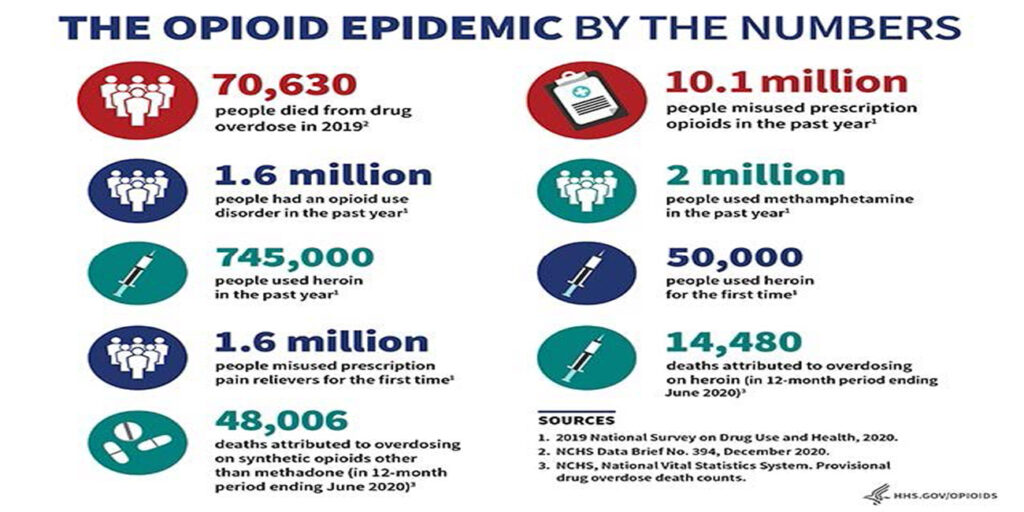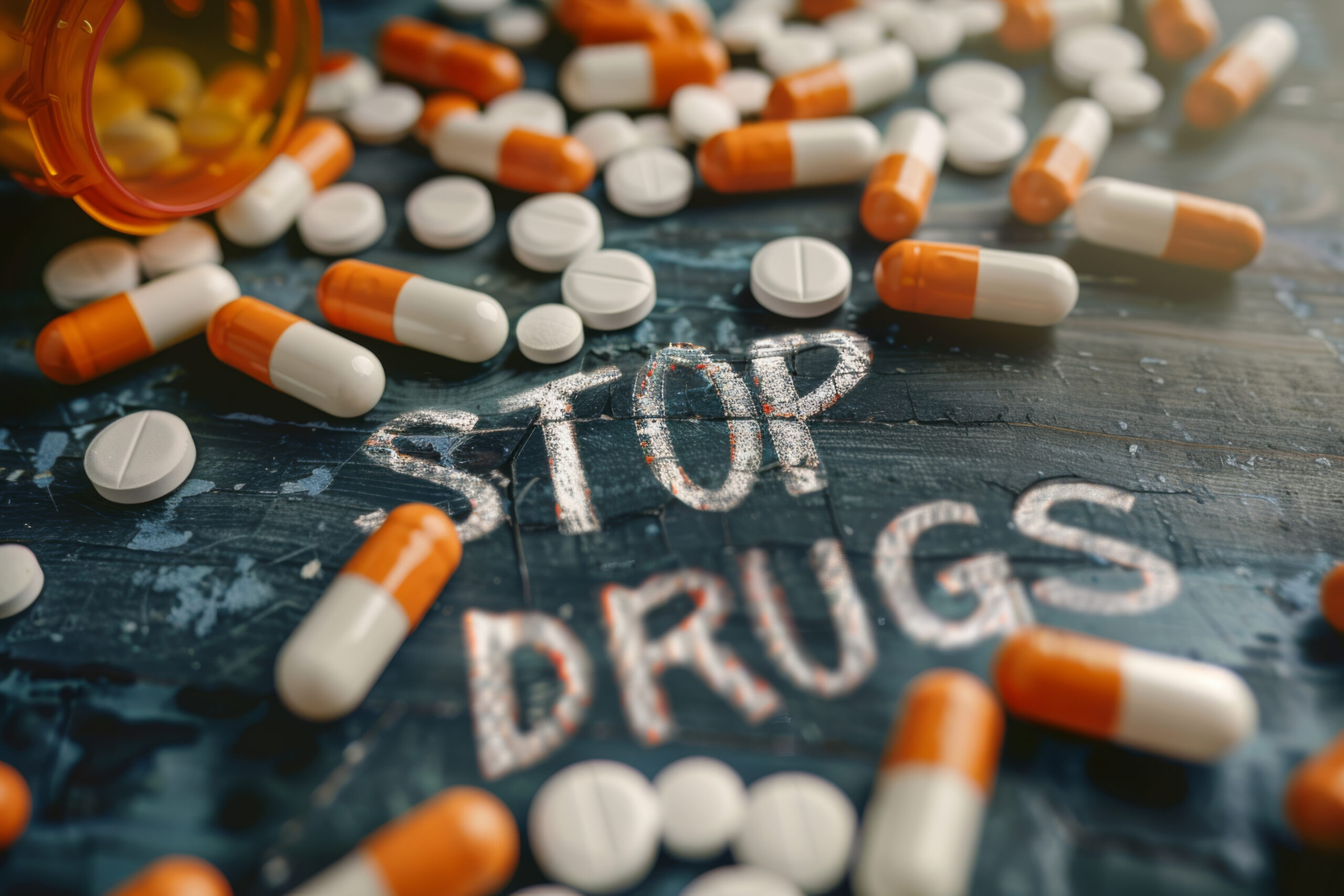Drug Addiction in Dallas TX: Effects, Treatment, and Solutions

What is drug addiction?
Drug addiction, also called substance use disorder, is a chronic brain disease where individuals actively seek, use, and become addicted to drugs despite negative outcomes. Brain function and behavior are all affected by this.

Facts on Drug Addiction in the USA
About 20.3 million people in the USA had a substance abuse use disorder in 2020. CDC data shows a continuous public health crisis with over 93,000 drug overdose deaths until September 2021. The number of deaths caused by drug overdoses has been on the rise, with opioids like heroin and prescription painkillers being the main culprits.
Drug addiction causes
- Genetics and Family History: A genetic predisposition is something that can make a person more likely to become addicted. For example, those who have parents or other relatives who are addicted to substance use are at increased risk.
- Early Exposure: Early experimentation increases the chance of getting addicted to drugs in adolescence, especially when the brain is still developing.
- Mental Health Disorders: Depression, anxiety, PTSD, ADHD, and other symptoms can be caused by the use of drugs. People may try to self-treat themselves to manage their symptoms.
- Environmental Factors: Living in an environment where drug use is normal or easily accessible can influence drug use behavior.
- Trauma and Stress: Experiences such as childhood trauma, ongoing stress, significant life changes, and other adverse circumstances can heighten the risk of turning to substance use as a way to cope.
- Social and Cultural Factors: An individual’s perception and behavior toward drugs may be affected by cultural norms, societal attitudes towards drug use, perceived norms, and drug information provided by the mass media.
- Availability of Drugs: Easy access to illegal drugs and alcohol abuse makes experimentation and continued use easy.

Effects of drug addiction
Drug addiction affects people in different ways; it has an impact on a person’s physical, psychological, and social well-being. In terms of physical well-being, an addict faces a number of health-related challenges, such as deteriorating health, infectious diseases from needle sharing (e.g., HIV/AIDS, hepatitis), and overdose deaths. When it comes to psychology, it alters brain function, leading to impaired judgment, memory loss, and mental health disorders such as depression and anxiety. Socially, it leads to divorce cases or separation since spouses or children cannot tolerate those behaviors anymore.
Some of the major drug addiction consequences are health complications, mental health disorders, social isolation, legal issues, financial problems, relationship conflicts, and the risk of overdosing, employment difficulties, academic setbacks, and public health concerns.

Drug Addiction Problems and Solutions in Dallas, TX
Here are some of the leading drug addiction problems and solutions in Dallas TX.
Stigma and denial
Problem: Drug addiction is a big problem today, and people don’t seek help because they are afraid of judgment or social consequences.
Solution: The success of public education and awareness campaigns in reducing stigma, increasing empathy, and promoting treatment-seeking behavior among the affected should not be underestimated.
Access to Treatment
Problem: Many people can’t get the necessary treatment for drug addiction due to a lack of insurance coverage, long wait times, and limited access to specialist care.
Solution: Increase access to evidence-based treatment programs by funding initiatives, broadening the health care coverage of addictions and telehealth services, and incorporating addiction treatment into primary care settings.
Relapse and Continued Use
Problem: Drug addiction is a chronic disease that often leads to relapse. People may face difficulties in maintaining long-term recovery without the aid of ongoing support and effective coping mechanisms.
Solution: Develop comprehensive relapse prevention strategies by using behavioral therapies, medication, group support, and individualized recovery plans.
Co-occurring Disorders
Problem: A common occurrence among individuals with substance use disorders is the development of mental health conditions like depression, anxiety, or trauma.
Solution: Integrated treatment approaches that address both substance use and mental health disorders, sometimes called dual diagnosis or co-occurring disorder treatment. Synchronized care from healthcare practitioners who have expertise in addiction and mental health.
Community and social support
Problem: Recovery from drug addiction is influenced by social factors such as family relationships, peer influences, and community support systems.
Solution: Strengthen community-based support networks, peer support groups, and recovery communities to provide ongoing encouragement, responsibility, and a sense of belonging for individuals in recovery. Promote family involvement in treatment for drug addiction and recovery processes to foster a supportive environment.
Treatment for drug addiction in Dallas, TX
When it comes to treatment for drug addiction, substance abuse can be best treated by using medicine, talking therapy, and care. It starts with detoxification. This is where a person is helped to slowly stop using the drug with help from doctors who make sure they are safe throughout their withdrawal period. Cognitive-behavioral therapy (CBT) and motivational interviewing are among the best treatment methods that involve making changes to a patient’s behavior patterns about drugs. Medications can also be prescribed to manage cravings and prevent relapse.
Why Choose Us for Drug Addiction Treatment in Dallas, TX?
At Archway Recovery Homes, we know that drug addiction in Dallas is a serious issue, and so we provide caring and effective treatment. Here’s why you should choose us:
- Expertise and Experience: With many years of experience in this field, our expert staff of medical doctors, counselors, and therapists provides top-notch professional service.
- Comprehensive Treatment Approach: We have a complete range of services, right from detoxification and residential treatment to outpatient treatment. We ensure that the treatment is continuous from the time that the patient gets into our program, even after they leave the facility. We have after-care programs.
- Personalized Care: We understand that each person has their own unique addiction. We tailor our treatment plans to suit your recovery goals, preferences, and needs.
- Holistic Approach: We emphasize holistic approaches like yoga, mindfulness techniques, and nutritional counseling to enhance overall health.
- Supportive Environment: We provide a safe, supportive environment where you can heal, come out drug-free, and live your life happily.
Drug or substance abuse is a serious problem affecting the entire society and has severe outcomes, though if treated adequately, one can get sober. If you or someone you love is suffering from substance use disorders, then it is high time to get the best assistance. If you are in Archway Recovery Homes, we are pleased to take you through a step-by-step process of how you will be leading to recovery. Call us today and find out how we can help you get the life you have always dreamed of and be drug-free.


